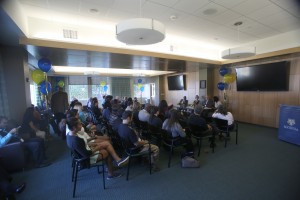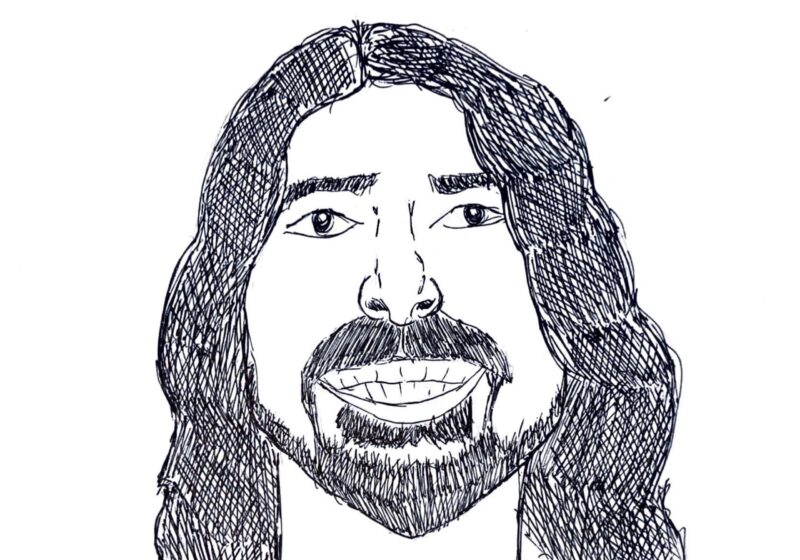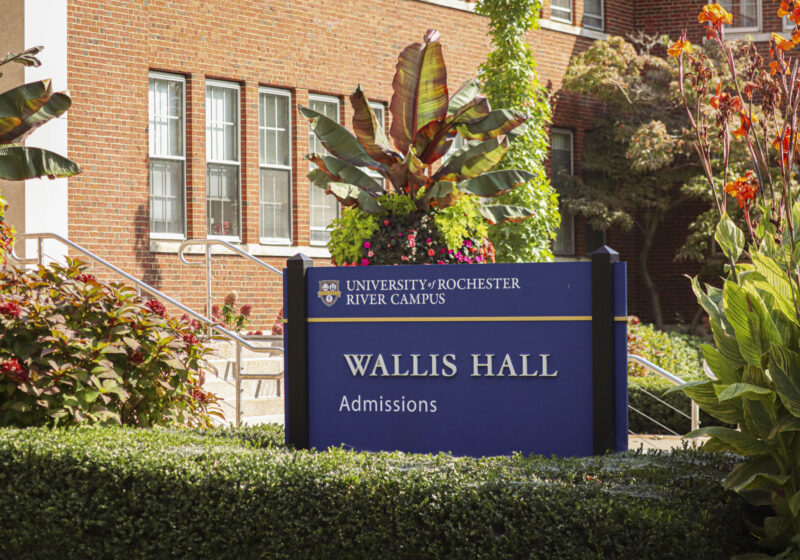UR’s new Intercultural Center was launched last Saturday as part of Meliora Weekend. Founders of UR’s 1960s “International Club” Dorothea E. de Zafra Atwell ´63, Brian Fleming ’63 and Payne Masuku ’65 were in attendance.
“The Center will build on that history by encouraging domestic and international students to learn from each other and build a stronger sense of cultural awareness,” newly appointed director of the Intercultural Center Michelle Thompson-Taylor said.
Thompson-Taylor led a panel discussion with the three alumni founders who shared their memories of pioneering International Club, the first UR organization to seek integration between international and domestic students.
The Club, founded in the fall of 1961, organized orientation for the incoming international students, held social events and discussions, and ran a publication called “The Cosmopolitan.”
All three guests expressed the value of friendship across cultures as they reminisced about the social politics of intercultural relationships in the 1960s.
“I find things that are different [among people] and think they are interesting,” Fleming said. “But among different people I find more in common [than might be expected].”
They also acknowledged the challenges of intercultural relationships, especially in the 1960s.
“I was unsure how a white person would look at me,” Masuku said. “I was unsure of how I would look at a white person.”
The audience was actively engaged with the guests’ accounts, asking numerous questions and sharing their ideas about the development of the new Center.
Dean of the College Richard Feldman explained the rationale behind the creation of the Intercultural Center.
“Diversity is the greatest strength of the College,” he said. “But it’s not enough to have a diverse population. We want to learn about them, we want to celebrate them.”
Thompson-Taylor then outlined the three main components of the International Center including a physical “cultural hub” for the center, an availability of resources for student projects promoting the aims of the center, and “cultural training” opportunities to explore food, music, and films to foster the promotion of cultural integration.
“Just because [international students] are here doesn’t mean that they are going to start interacting and living with each other,”
Thompson-Taylor said. “The Intercultural Center has an overarching responsibility for cultural awareness and engagement and also facilitates the College Diversity Roundtable and the Communal Principles Project.”
Thompson-Taylor is working to expand recognition of the Intercultural Center by collaborating with other campus organizations like the Interfaith Chapel and Fraternities and Sororities.
Thompson-Taylor concluded the event by highlighting this semester’s events, which included a conversation series featuring the
Zimmerman Verdict, a forum called “Are we a global village at UR?,” and the introduction of a film series with movies on the Cuban Revolution and the Tiananmen Square student protests.
Collaboration with other campus groups and the events that have happened thus far are only the initial measures to grow the Center from infancy to a thriving campus name.
Thompson-Taylor emphasized that its development is an ongoing process.
“It is really not like we have solved the problem and now we can go back to our normal business,” she said. “The Intercultural Center will morph and change, it will become what we put into it so I’m relying on you all to be able to have input and make this the really inclusive kind of campus that we are aiming for.”
Pinera is a member of the class of 2016.





